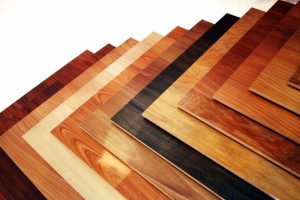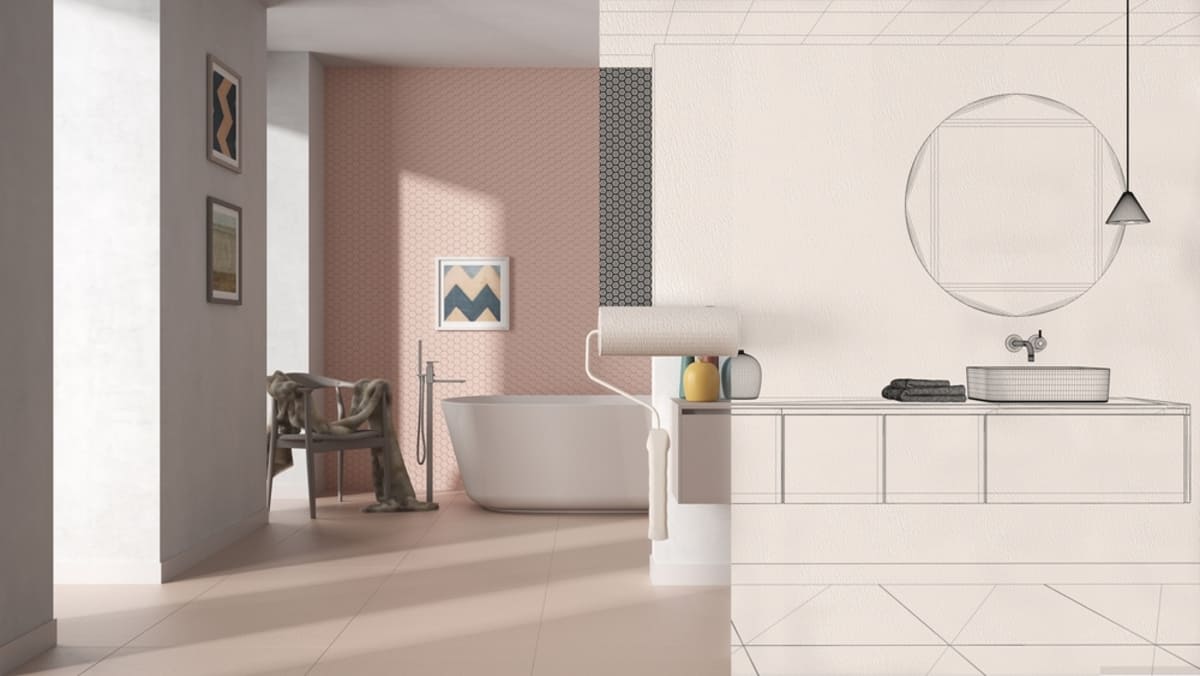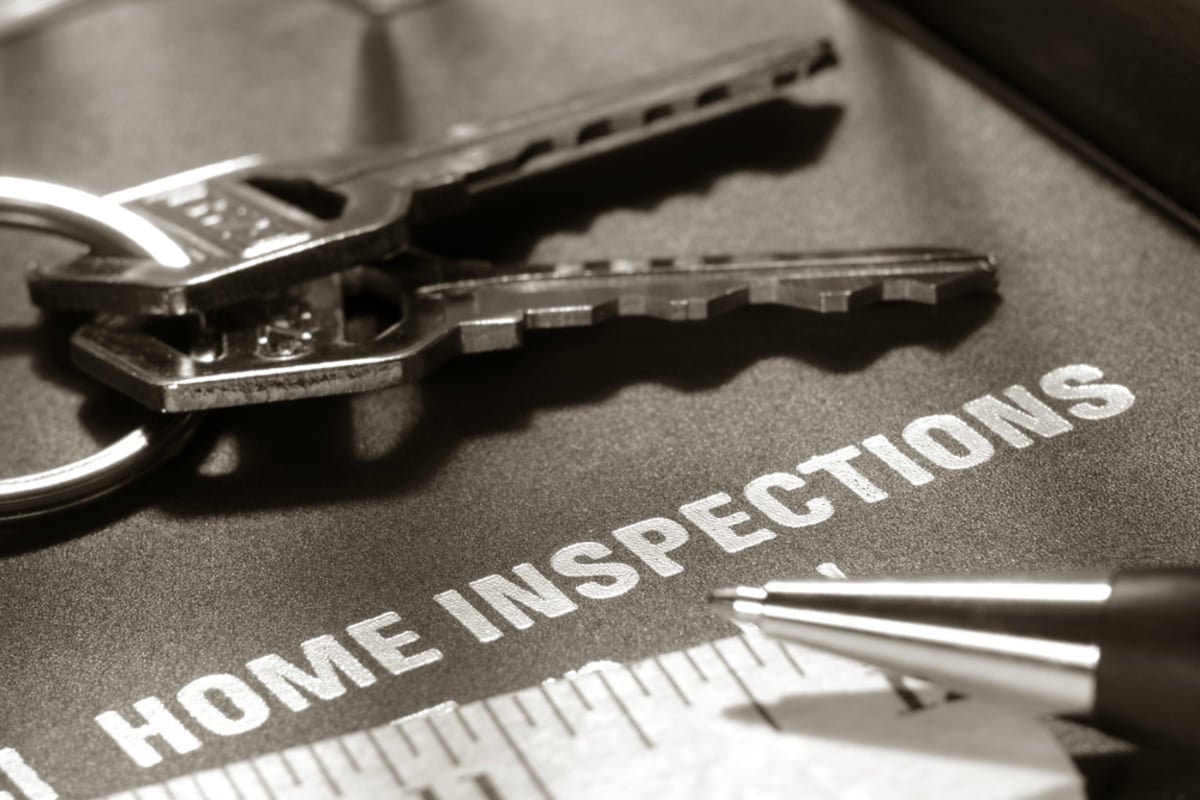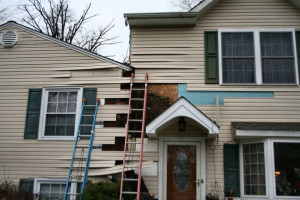Updated February 28, 2023
Often, property owners must fix holes in walls left by tenants after move-out. So if you're considering new flooring, repairing holes before installing new floors is an ideal time!
Replacing the flooring, whether in single-family homes or multi-family units, is one of the most common expenses real estate investors face in the Charleston area. Because of the wear and tear, damage, stains, and everyday abuse heaped upon floors by tenants, many property owners find it necessary to replace part of or all of their rental homes' floor coverings as part of the make-ready process during vacancies.
Let's look at the pros and cons of various types of flooring from the perspective of expert Charleston property managers to help you gain some insight into the right choice for your rental homes.
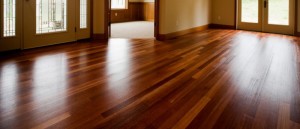
Why Property Management Experts Say It's Important to Replace Flooring
The flooring in your rental property is instantly noticeable to anyone who walks through that front door. It often impacts whether or not a potential tenant 'falls in love' with the property.
-
A stained or overly-worn floor in poor condition can make a prospect conclude that the home isn't very well taken care of.
-
On the other hand, an attractive and up-to-date floor can brighten up any room and help applicants more easily envision themselves living there.
Therefore, choosing just the right flooring option for your rental property is more important than you probably realize.
It's Important to Renters
The floor underfoot is important to your residents because they will live there; it will be their home.
They're going to walk, stand, sit, and sometimes lay down on it. Their children are going to crawl around and play on it. When life and all of its dirt and stains happen, they are the ones who are going to have to clean it.
It's Important to Property Owners
That same floor is important to you—not only because of how attractive it is to perspective renters but also because your choice of flooring will have a direct impact on how often it needs to be replaced or repaired, how expensive it is per square foot, and how difficult it will be for you to remove and install when the time comes.
Property management experts recommend some questions to ask yourself before selecting flooring for a room in a rental home:
-
How many people will be using the room in question?
-
What kind of foot traffic should I expect?
-
Are there any children that may be staying in my rental?
-
Are there any pets that could potentially damage the flooring?
-
Will there be regular exposure to moisture?
-
Do I have the necessary skill level to install it?
-
What is my budget for this particular investment property?
Remember that not all flooring is ideal for every room in the house. For example, rooms with the potential for water on the floor (like bathrooms and kitchens) probably aren't ideal for carpeting.
How Much Does Flooring Cost for Charleston Rental Properties?
When pricing flooring, remember that professional labor costs are likely not included. However, installation time is figured by how long it should take a professional to complete the job. If you plan to DIY your flooring installation and are of average skill, you will probably want to double that time commitment.
So, how much does flooring cost? Which type of flooring is best for rental properties? Here are some experts insights for your homes for rent in Charleston, SC.
Vinyl Flooring
Vinyl is a completely synthetic option with the widest variety of colors and patterns available among flooring choices. Because it is flexible and non-porous, moisture can be an issue when it is often used in kitchens, bathrooms, and laundry rooms. It is available in both sheet and tile styles.
-
Pros: Vinyl is a very inexpensive flooring option and possibly the easiest to install—especially if the sheet style is used. It can be glued or nailed to a subfloor, and because it is so flexible, it can even be installed over uneven floors. It is also low maintenance and easy to clean.
-
Cons: Durability can be an issue. Vinyl flooring is relatively soft, meaning that it can be cut or damaged by sharp-edged objects. Repairing is extremely difficult, meaning replacement is often the only option. Over time, the adhesives and chemicals used can emit fumes.
-
Cost (without labor):
-
Sheet: Between $3.18 and $4.12 per square foot, with a total job price or materials, supplies, and equipment of between $5,082 and $6,586.
-
Tile: Between $10,741 and $14,111, or $9.21 to $12.52 per square foot.
-
Installation time:
-
Sheet: About 10.8 hours (about $1,280 in additional costs for professional installation)
-
Tile: About 50 hours (between $4,000-$6,000 in additional costs from a professional installer).
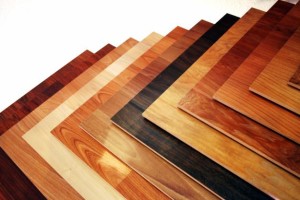
Laminate Tile
These are laminated tiles made of synthetic materials manufactured to mimic the appearance of wood or stone. Laminated synthetic tiles come in a relatively generous amount of colors and patterns.
-
Pros: Laminate flooring is very easy to install, and some styles are manufactured with a tongue and groove system that locks together very simply, eliminating the need for an adhesive. The tiles are stained-resistant and easy to replace if damaged.
-
Cons: Although laminate flooring can mimic the look of hardwood floors, it is not actually wood and cannot be refinished or sanded if scuffed or scratched. It can be very slippery when it is wet. Although the installation process is relatively simple, it is meticulous and can be time-consuming, especially for a non-professional.
-
Cost: $2,701 to $3,480, or between $1.69 and $2.18 per square foot.
-
Installation time: About 92.4 hours.
Carpet
Carpet is best suited in areas that are not expected to receive a lot of moisture. Most carpets are made of synthetic materials such as polyester, polypropylene, or nylon. It comes in many styles, colors, and patterns.
-
Pros: Carpet can act as an insulator that can retain warmth and serve as a noise damper. It creates a 'warm' and welcoming atmosphere.
-
Cons: Compared to other flooring materials, carpet tends to stain easily and can be expensive or difficult to clean. Cheaper carpets in high-traffic areas can wear out rather quickly.
-
Cost: $6,188 to $7,981, or between $3.87 and $4.89 per square foot.
-
Installation time: About 28.4 hours (up to $3,365 in additional costs when professionally installed)
Ceramic or Porcelain Tile
Glazed porcelain or ceramic tiles can come in various sizes, designs, and colors. They are suitable for indoor and outdoor use and ideal for high-traffic areas, bathrooms, and kitchens.
-
Pros: Tiles are highly durable and are both stain-resistant and easily cleaned. If individual titles or sections are damaged, it is relatively simple to replace them, and any imperfections are difficult to detect.
-
Cons: Tiles can be difficult and very labor-intensive to install. The grout between the tiles can become stained or discolored. Because it presents a very hard surface underfoot, a tile floor is not ideally suited for comfortable living areas.
-
Cost: $5,432 to $7,001, or between $3.39 and $4.39 per square foot.
-
Installation time: About 195.6 hours. Plan to add up to $23,178 in installation costs when using a professional.
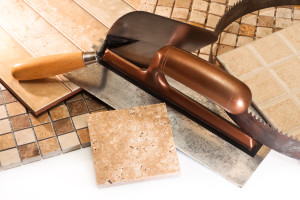
Hardwood
Hardwood flooring is usually cut from a single piece of timber, most commonly hickory, maple, walnut, or oak, and is available in several colors of stain.
-
Pros: Hardwood floors give a home a rich, earthy feel. This option is very sturdy, extremely durable, easy to clean, and very resistant to wear. When scratched, scuffed, or stained, they can be sanded and refinished again and again. It is suitable for every room in the house.
-
Cons: Installing, refinishing, or repairing a hardwood floor can be quite labor-intensive. This type of floor will not dampen sound and does not retain heat. Hardwood is also one of the more costly flooring options.
-
Cost: $11,096 to $14,472, or between $6.94 and $9.05 per square foot.
-
Installation time: About 88.9 hours and additional costs of $10,532 with professional installation.
Engineered Wood
Engineered (or composite) flooring is a 'veneer' of hardwood over several layers of wood underneath. It comes pre-laminated and is manufactured to have a specific appearance.
-
Pros: Although it is similar in appearance to hardwood, it holds certain advantages. It is much easier and quicker to install, and it is more resistant to moisture than hardwood. It can be installed over almost any subflooring type. Engineered wood flooring is considerably less expensive than hardwood.
-
Cons: Composite wood can only be sanded/refinished one time. The edges of individual pieces are not finished, and if frayed, they can let moisture seep in. In addition, this option is not as durable as hardwood.
-
Cost: $7,104 to $9,251, or between $4.44 and $5.78 per square foot.
-
Installation time: About 82 hours (up to $9,717 in additional professional installation costs).
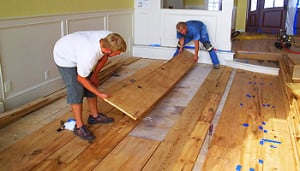
Cork
This flooring option is made from the bark of the cork oak and is popular in high-end properties in the Charleston area where the occupants may have concerns about eco-friendliness.
-
Pros: Cork flooring's chief appeal lies in its high sustainability and natural appearance. It is very durable and will recover from any compression due to excessive use in high-traffic areas. In addition, it is resistant to both stains and mildew.
-
Cons: Cork flooring is more expensive than most other flooring options. If improperly finished, its durability and water resistance can be adversely affected. Because of this, it may not be an ideal choice for kitchens, bathrooms, or laundry rooms.
-
Cost: $8,837 to $11,531, or between $5.52 and $7.21 per square foot.
-
Installation time: About 27.3 hours and an additional $3,233 in professional installation costs.
Bamboo
Like cork floors, bamboo flooring is popular among those who value eco-friendly, renewable flooring options. This would be a perfect fit in a modern, high-end, luxury Charleston rental property. In this choice, bamboo reeds are installed over existing subflooring.
-
Pros: Just like hardwood, bamboo flooring is ultra-durable and hypoallergenic. It is a bright, cheery design choice, and the bamboo's natural sandy-blonde color is reminiscent of beech wood. In addition, it is very easy to clean and relatively simple to install.
-
Cons: Bamboo floors can be vulnerable to damage from water, and their color is susceptible to fading from sunlight damage. The adhesive used when installing the reeds may release 'volatile organic compounds' (VOCs) over time. Look for the 'GREENGUARD' or 'FloorScore certification to combat this.
-
Cost: $5,451 to $7,048, or between $3.41 and $4.40 per square foot.
-
Installation time: About 70.5 hours (with up to $9,717 in additional professional installation costs)
NOTE: All estimated costs and labor hours were calculated specifically for zip code 29412, Charleston's largest, using the non-discounted retail cost for typical mid-grade flooring, as researched by Homewyse. For estimate purposes, the figures are for an average 1,600-square-foot home.
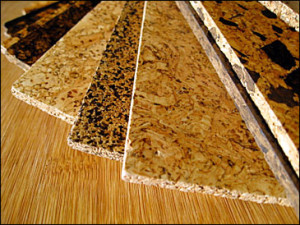
How Should Property Owners Choose the Best Flooring?
Your choice of flooring material will depend significantly upon your particular property and the demographic you are renting. Additionally, your decision will be influenced by your skills and familiarity with a given flooring product.
Do not be overly swayed simply by the 'square foot' material and equipment cost of one material over another. For example, hardwood appears to be considerably more expensive than stone flooring—but it can be installed in less than one-third the time of other flooring types.
If you're not sure which flooring and installation is right for one (or more of your properties), consult professional Charleston property managers! They can run the numbers for you concerning which flooring type will result in the greatest ROI for your investment property based on where it's situated in the Charleston rental market.
Make the Right Flooring Choices With the Best Charleston Property Management Experts
Whichever route you decide to go, think of your flooring project as an investment in your rental property. Choosing the right floor can save you money in replacement and repair costs, save you time in cleaning and rental property maintenance, and make you money when it attracts interested and enthusiastic tenants. Of course, it will also make it easier for them to take care of your rental property too!
Charleston Property Company is here to help! Get started with our Free rental Analysis to ensure you're earning top dollar from your investment property. As the best property manager Charleston, SC, offers, we can also recommend updates like flooring before you invest in the expense of the wrong floor.

